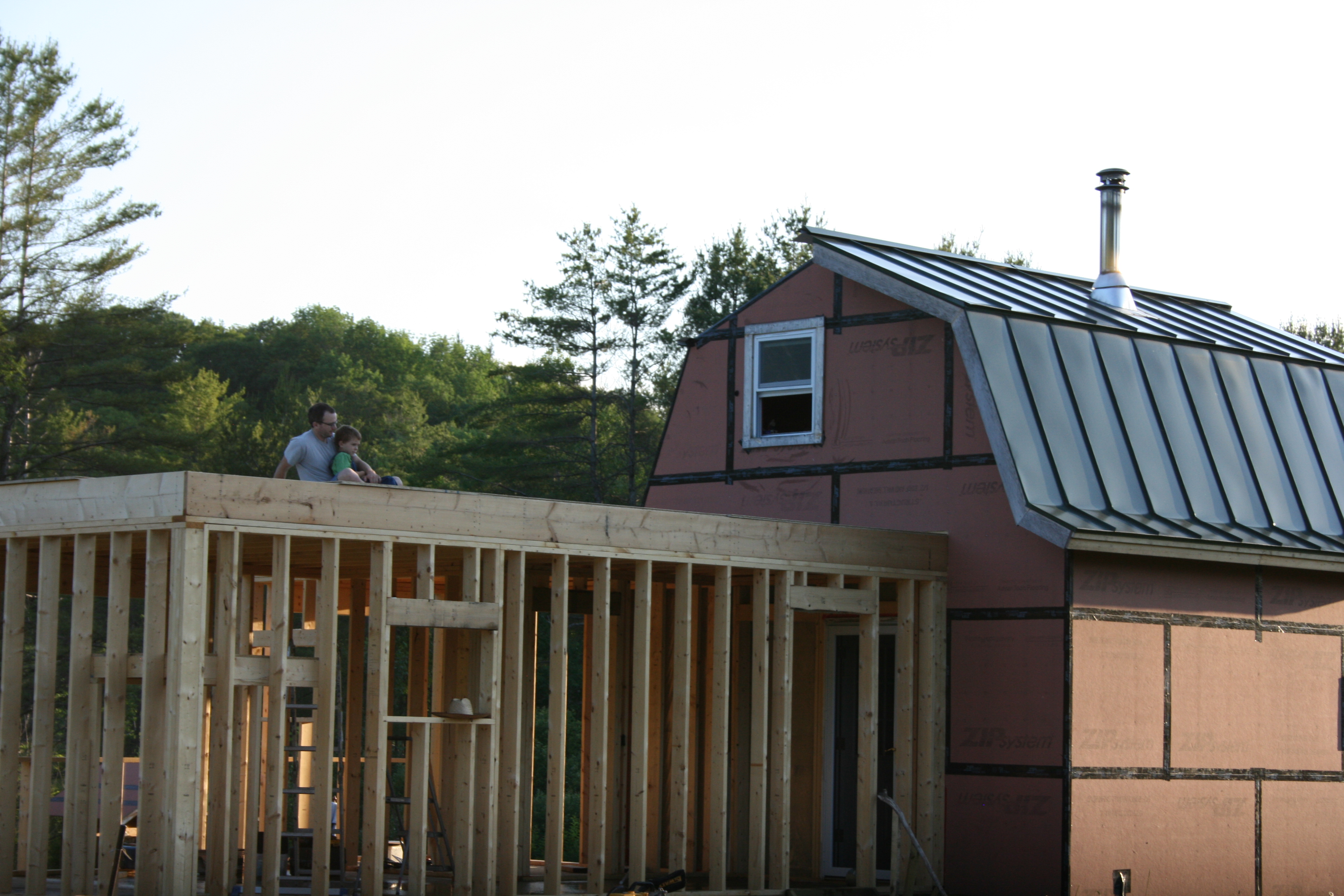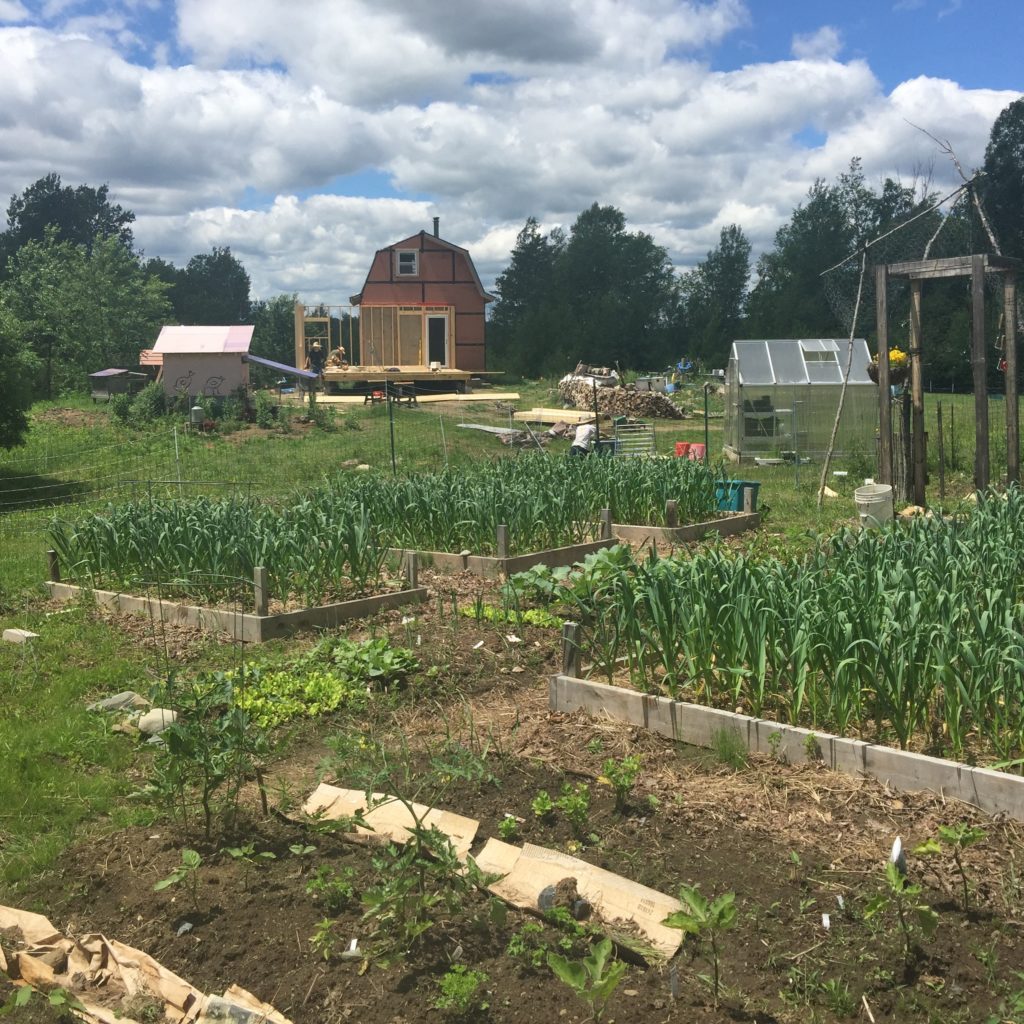
When I dreamt of a simpler life in Vermont, I imagined driving down a road one day, one of those dirt roads Vermont is famous for, and stumbling upon an old farmhouse with rolling meadows. We would be the first to find this diamond in the rough, we would buy it for next to nothing, and there we would live happily ever after.
Having moved to Vermont, a state we had previously only read about and never actually set foot in, we realized quickly that we weren’t the only ones yearning for a simpler life. There were indeed little farms at the end of dirt roads with rolling meadows, unfortunately, none we could afford. We waited for years, anxiously looking for a house we could fall in love with. And so we started to compromise on the dream, “maybe an acre will do,” I remember thinking. “Maybe a longer commute will do,” my husband started saying.
When finally someone in town said she was willing to sell us about 50 acres, without a house, we took a quick drive around it and decided it would do. There wasn’t much to see, as the land was still covered by a few feet of snow, yet we figured there must be a decent place to build a house on such acreage. We quickly signed all the necessary papers, never actually mentioning to each other the obvious: we knew nothing about building.
Building a house was never something we had considered before moving to Vermont. We didn’t grow up around people who did that sort of thing. We both grew up in cities, in European countries that have mastered the art of bureaucratic nonsense, including restrictive zoning.
It never occurred to us that one can actually build a house, from scratch, not only just the act of doing it, but it being allowed by society in the first place.
It is rare that we encounter people who have built their own house outside of our community, even in rural Vermont. We are fortunate to live in a town that does not have any zoning, a community that allows for alternative life paths. Our homesteading journey, building our home and living closer to the land, has become a new normal for us. Though on occasion I am stopped in my tracks talking to people from a previous life, and I am reminded that this is all in fact far from the norm. And yet, it wasn’t so long ago that humans were preoccupied mainly by a few basic needs, not the least of which being housing. In a short few decades, the skills necessary to meet those needs have escaped our collective memory. Understandably so: physical labor is hard, and as our society has shifted to be more industrialized and technological, so has our skill set.
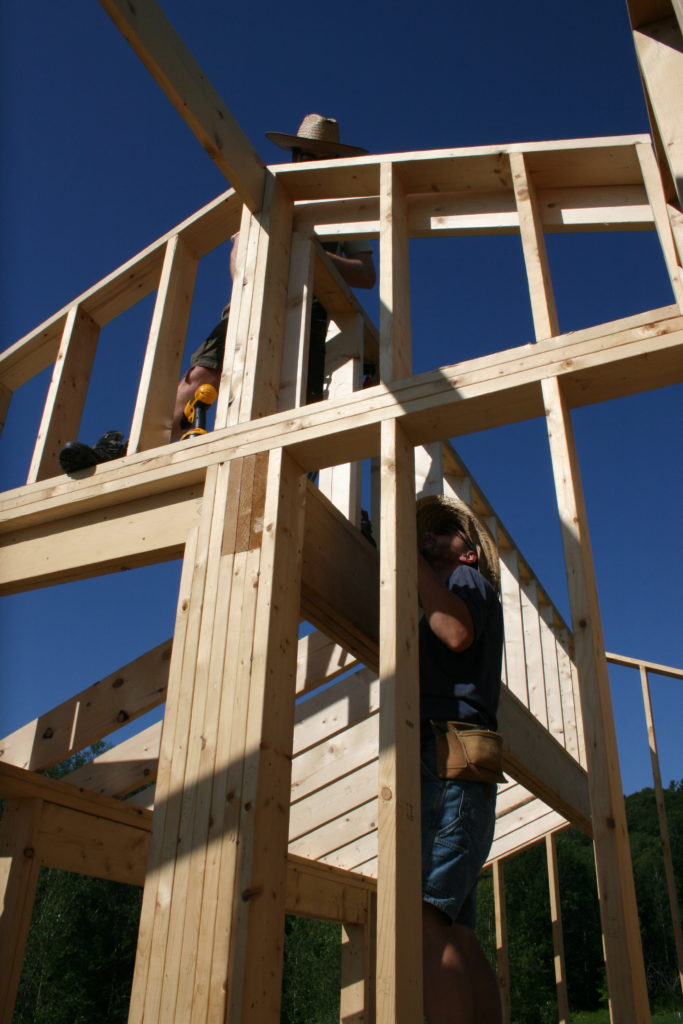
We realize that our adventure in homesteading happens within the comfort of a 21st-century world. We, for example, forego the modern washing machine or running water in the house, but we would not dare imagine living without the internet. Or build without power tools. But there are still relevant lessons to learn from building. Having built our home, I wish more people would consider the option for themselves. If not building a house, maybe familiarizing themselves with some aspect of how a house is built, as they are many advantages to build a house beside the obvious one of having a roof over your head. Here are a few personal ones:
Building our house has reconnected us with forgotten skills. We have spent many nights with friends reviewing our drawings and plans, talking about how a house is structured and built.
Those concepts felt so familiar but still very foreign compared to all we have spent time learning in schools and universities. We are proponents of education, but there must be a way to introduce basic skills into the curriculum and introduce those at an early age through high school. We often question the cost to society when basic skills like growing food or sewing which are dismissed as unnecessary. Making something tangible and necessary has reconnected us to a deeply ingrained part of our humanity.
Building a house yourself can be very cheap. We bought our land with no money left for building. So we delayed moving by a year, to try to save money by each getting additional income from side jobs. A year later, we had about $10,000 saved, which was enough to cover an initial structure we could move into. It was at first, and for the following two years, a very small and modest house, with no running water or modern amenities. Even now, it still lacks a lot of features people consider essential.
Building is a slow process. Friends who have built their home often tell us that a house is never truly done. We have learned over the years to embrace the slowness of the process. We started with a blank canvas, and any addition or improvements we make to it is carefully planned and wanted, as opposed to a model house that would not fit our homesteading lifestyle. We customize to our needs but also to our climate and land. We heat our house, cook, heat our water with wood from our woodlot, for example, because it is the best energy source for our family in Vermont. We couldn’t imagine heating with propane, oil, or electricity when a renewable heat source grows right outside our door.
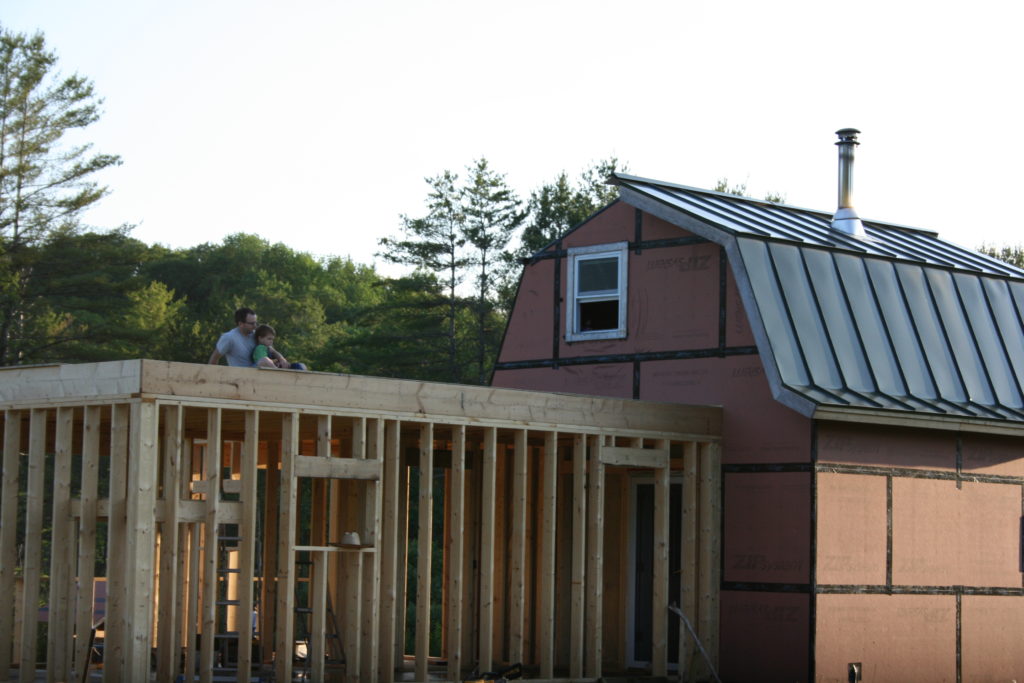
Building our house changed the relationship we have with it. We don’t see it as a real estate transaction, a mere transition in our housing history. It’s not an investment, but a home we want to grow old in. We even dream sometimes that our kids might want to live on our land one day, to build their own homes.
When we add a new kitchen or upgrade our solar panels, we are not letting a future buyer influence our decision, we only think about what we want out of life. Building has reinforced our values. We feel a growing disconnect from unhealthy yet conventional aspects of modern life.
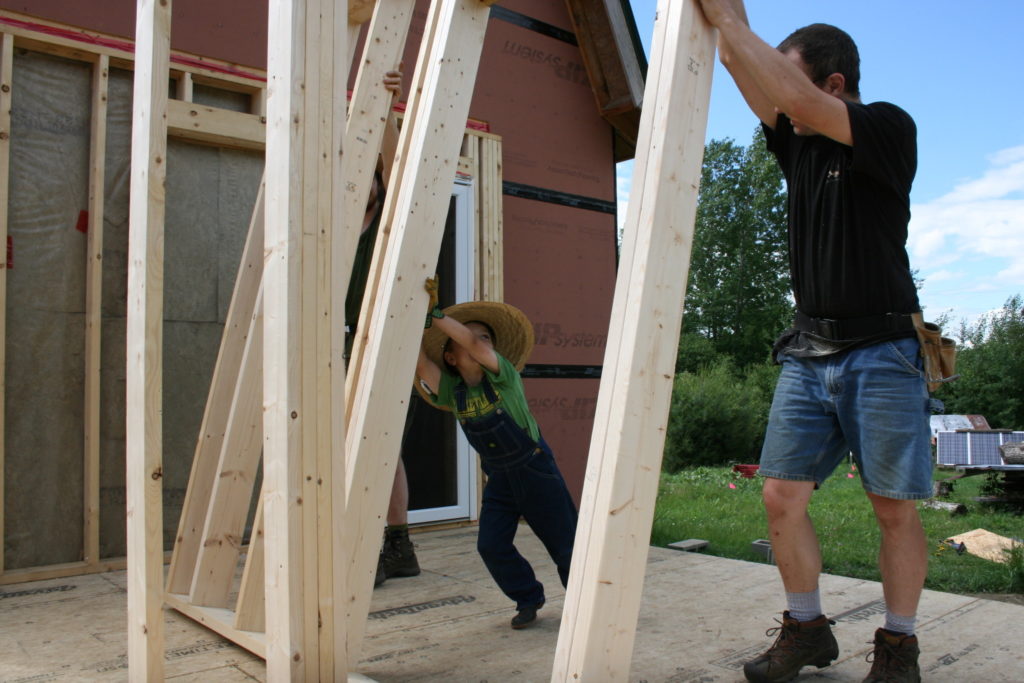
We have felt very much in control of our life and our future in a way we never experienced before when we had a mortgage, contributing to a banking system and stock market we don’t agree with. Having the assurance that no matter what happens with our jobs, world finances, or even climate change, we will always be able to build a house for us to live in, a house that is free from reliance on perpetual growth.
Building our house has been bigger than the act of building a shelter. It has been about creating a life from scratch, a meaningful one, a journey into exploring our family’s needs and wants. We have learned to trust ourselves and our capabilities, doubting them too especially on blustery winter nights, when the force of the wind can be felt from within the walls.
It is safe to say that we will probably never move again, having invested so much of ourselves into building this home. It has become an expression of who we are, how we view life.
We have also invested our energy into getting to know our community, our neighbors. Good neighbors and friends are essential during the long winter months in Vermont, for company but also for support (I have been towed out of our driveway by my neighbor more than I care to admit.)
In the end, building our house has deeply connected us to our land, our community, and has allowed us to explore our values. We have done so frugally, with two kids in tow. It hasn’t always been easy, physically or mentally. There were some doubts along the way, but some certainties too: if we can build a house, what else can we do?
